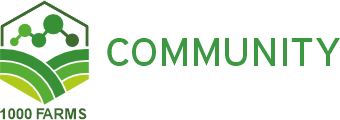Click on the link below to view the webinar by Gospel Edughaen from IITA on 21 Jan 2025, presenting Social Dynamics associated with Implementing Mother-baby and Tricot Participatory Trials on Selected Cassava Varieties in Nigeria
Presenter Bio: During her MSc programme at the University of Ibadan, Gospel carried out research on the impact of Mother-Baby and Tricot trials, two types of on-farm participatory trials, that were implemented between 2017 and 2022, by the International Institute of Tropical Agriculture (IITA) and the National Root Crops Research Institute NRCRI) to study variety trait preferences and evaluate newly bred cassava varieties with farmers and processors.
For more into contact Gospel at: g.edughaen@cgiar.org
Summary : This study was conducted in Osun and Imo States, Nigeria. The research highlighted that these trials strengthened community interactions, enhanced participants’ social status and influence and livelihoods. Social network analysis revealed that the cassava varieties diffused actively within and between communities driven mainly by traits such as early maturity and good food product qualities apart from high yield. Other reasons were market demand, food availability and preservation of varietal diversity. Varieties diffused to secondary and tertiary beneficiaries within and outside the study area.
| Question | Answer |
|---|---|
| What might be the possible reasons of the different results between the trials and the tricot trials? | It was an imbalanced sampling. So we had more of the tricot participants because of the relative advantage of the trial design. I think that was one of the things that also affected the results for the trials. |
| What activities was organized to foster the knowledge transfer between farmers? | During the evaluations, we prioritized knolwedge transfer and farmers also learned from each other about the 3 months evaluation that took place during harvest. After the trial ended, most of these trial participants also shared the knowledge in the social group, especially those who were also leaders. |
| What’s the response about your project from the university where you did your Masters? Is there interest in the method and also teaching it to other students, for example? | The lecturers were so happy to actually see what we do in the field. And they also shared their insights on the trials. |
| Did knowledge transfer happen mostly between farmers directly? Or did farmers unions or associations play a role? | Both. The unions also played a role, although some of the respondents said they do not belong to associations. Most of the trial participants would just come to visit me at my home. We also met at the marketplaces. Some of them also liked to share this knowledge of their farm in the social groups. So all played a vital role in the dissemination of cassava varieties |
| What kind of support mechanisms would help to continue the adoption of tricot? | What will increase the adoption rate is to prioritize the traits and preferences across those regions, and also to give farmers more seeds to actually to cultivate while also increasing their livelihoods. |
| What were the selections criteria to select the regions and the farmers? | The selection criteria were based on those locations that IITA and NRCI worked with. |

